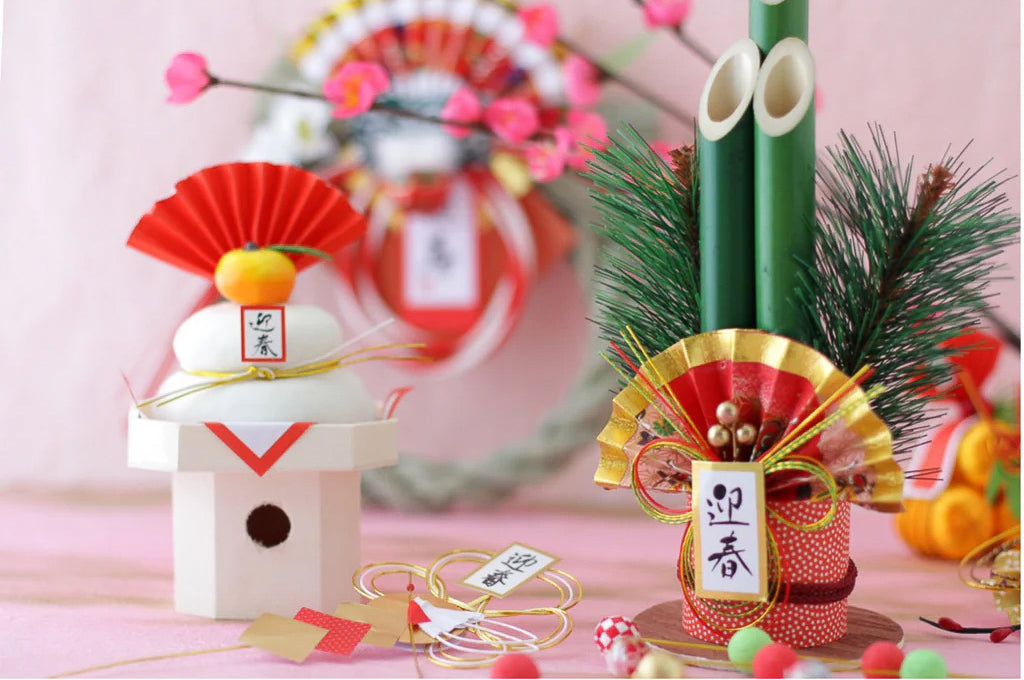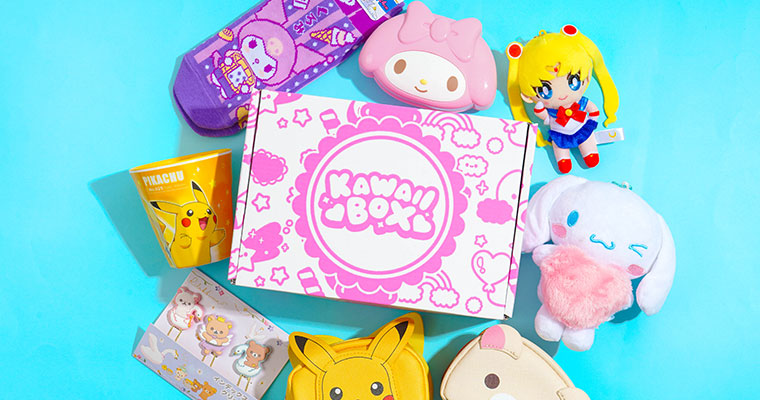New Year in Japan isn’t just like any other celebration. While most people associate New Year's with parties, drinking, and countdowns, in Japan, New Year is all about family and traditions.

Lasting for nearly half a week, New Year’s celebration or Oshogatsu (which you can read more about in our Japanese New Year blog) is a festive affair with things like Hatsumode (初詣) or the first shrine visit of the year, New Years TV programs, and tons of delicious food (which you can learn about in our blog about Japanese New Year Food).

One of the traditions Japanese families follow during New Year’s is cleaning the house and decorating it with special items to bring good fortune into the home. Put on your cutest outfit because today, we’re going on an adventure to learn about the different Japanese New Year decorations that you need to put up for good luck!
What Are the Decorations for Japanese New Year?

In Japan, New Year is all about welcoming Toshigami-sama, the god of the New Year. Not only do Japanese households usually clean up in order to welcome Toshigami-sama into the confines of their house, but they also put up special decorations for the deity. These decorations aren’t just pretty to see—they’re filled with a lot of special meaning.
Hanamochi (花餅)

A special New Year decoration, Hanamochi was originally created by Japanese people from the north who lived in snowy areas with no fresh flowers in the winter. These special New Year's decorations are made by sticking small balls of pink and white mochi to slender tree branches.

Not only do these colorful New Year's decorations welcome an auspicious harvest, but they also showcase Japanese farmers' good fortune. Hanamochi are mostly made by the Japanese people in Hida in the mountainous area of the Gifu Prefecture in Japan. These people have been making it for New Year's for at least four centuries!
Kagami Mochi (鏡餅)

Also known as mirror rice cake in English, kagami mochi is a decor made up of two white rice cakes, one large and one smaller, stacked on top of each other. On the very top is a "daidai" orange. The kagami mochi is a special New Year's decor that acts as a "yoshiro" or object that summons the gods. It's made to especially summon the Japanese god of the New Year, Toshigami.

On January 11, Japanese families can open the kagami mochi during the traditional "kagami biraki." Instead of using a knife, people break the kagami mochi with a mallet or with their bare hands. They can eventually add the mochi into their meals like in ozoni, a traditional Japanese New Year's soup.
Kadomatsu (門松)

Another important decor during oshogatsu in Japan is the kadomatsu. Known as a Gate Pine in English, the Kodamatsu is a set of pine decors set around doorways. At the left side is the male pine or omatsu, and on the right side is the female pine or the mematsu.

These two pine decors are meant to look like they're laughing. That's because in Japan there's a proverb that goes "warau kado niwa fuku kitaru" or "fortune comes to a gate that laughs." The smiling kadomatsu is supposed to welcome fortune into the family's home during the New Year.
Shimekazari (注連飾り)

Made of straw rope and a beautifully folded piece of paper called "shide," the shime kazari is a traditional New Year decoration placed at the entrance of a Japanese home. It's supposed to ward off bad fortune and welcome the New Year kami or god.
Bring the charm of Japanese decor to your home! Check out Kawaii Box, the #1 monthly subscription box filled with kawaii things, like Japanese plushies and cute accessories!
When to Put Up New Year's Decorations

There really isn't any set date to begin decorating for the New Year, but most families do it as soon as they can take off their Christmas decor. There are certain dates that should be avoided for decorating, though, like December 29 and 31.

Why, you ask? Well, the Japanese translation for 29th sounds like "double hardships," making it a bad day to spruce up the home for New Year's. December 31 is also a bad choice as it would mean that your decors are just up for one night for the new year. It's just like how Japanese make funeral preparations right before the ceremony. No one wants that!
When to Take New Year's Decorations Down

Most of the time, Japanese families leave their decorations on until January 7. When they take them down, they purify the decors with salt and dispose of them. However, in some places in Japan, some communities take it a step further.

You see, after oshogatsu, some places in Japan go on to celebrate koshogatsu or the Little New Year. It marks the first full moon of the New Year and is celebrated with a fire festival called dondo-yaki or sagicho. That's when decorations are burnt so that the Japanese god of the New Year, Toshigami, is sent back to heaven.

So, there you have it! Those are all the decorations that Japanese people put up during New Year to welcome Toshigami-sama. From the colorful Hanamochi to the delicious Kagami-mochi, these decorations are a sight to behold during Japanese New Year. We hope you enjoyed learning all about them! Until next time, stay kawaii!







